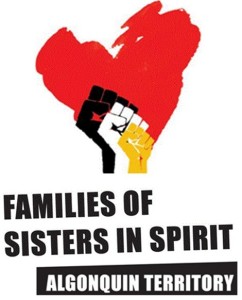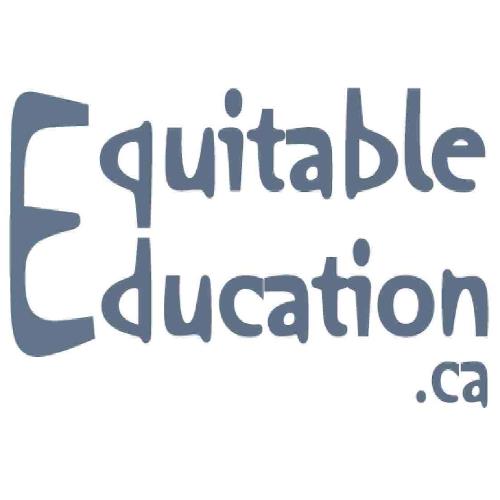 Kristen Gilchrist self-identifies as a non-Indigenous woman with Scottish, Welsh, French-Canadian and Ojibway relations, living on un-surrendered Algonquin lands. She’s working on a doctorate in sociology at Carleton University, is a survivor of sexual violence(s), co-founder of Families of Sisters in Spirit (FSIS), and ally in Ottawa’s sex-workers’ rights movement.
Kristen Gilchrist self-identifies as a non-Indigenous woman with Scottish, Welsh, French-Canadian and Ojibway relations, living on un-surrendered Algonquin lands. She’s working on a doctorate in sociology at Carleton University, is a survivor of sexual violence(s), co-founder of Families of Sisters in Spirit (FSIS), and ally in Ottawa’s sex-workers’ rights movement.
** note: this was originally written for another site, but then wasn’t accepted b/c it didn’t fit with the vision of that site **
This Thursday is Valentine’s Day. Throughout the day, Memorial Marches will be held in at least thirteen communities across these lands to honour of missing and murdered women. The first annual Memorial March took place in the Vancouver Downtown Eastside, Coast Salish territories 22 years ago. During the past decade (or so) grassroots groups like No More Silence in Toronto (Mississauga of New Credit), Missing Justice in Montreal (Mohawk), Full Moon Memory Walk in Thunder Bay (Ojibwe), and FSIS (Algonquin) have also dedicated February 14/Valentine’s Day to drawing critical awareness to violence(s) happening in their communities, especially violence(s) directed at Indigenous women.
 When (blogger) asked me to contribute to his blog, I was grateful and appreciative for the opportunity to mention all these kickass community-based, Indigenous women-led actions happening on February 14, 2013. But when he asked me to write about my experiences as a settler ally in movement(s) to end violence(s) against Indigenous women and girls it took me a long time to figure out what I was going to write. In reality, on the day of the deadline, my piece was far from being finished.
When (blogger) asked me to contribute to his blog, I was grateful and appreciative for the opportunity to mention all these kickass community-based, Indigenous women-led actions happening on February 14, 2013. But when he asked me to write about my experiences as a settler ally in movement(s) to end violence(s) against Indigenous women and girls it took me a long time to figure out what I was going to write. In reality, on the day of the deadline, my piece was far from being finished.
The testimonies and knowledge(s) of Indigenous women across Turtle Island (North America) are foundational to my understandings and are an important starting point. But I speak only for myself. I do not represent FSIS or claim to speak for Indigenous women or have any claim to Indigenous knowledge systems. This writing is a reflection of my social location, background, and experiences as a privileged non-Indigenous settler woman. My interpretations of their work locate colonialism and colonization as violent processes and as violence in-and-of themselves.
Bonita Lawrence (2002) shatters the settler myth of Canada as being a nation founded on peaceful settlement; where colonialism was largely benign, colonizers were necessarily paternalistic, and that the appropriation of lands, resources, sovereignty of Indigenous Nations were a step towards the democratic and egalitarian Canada presumed to exist today. Andrea Smith (2007) highlights parallels between sexual violence (forced disappearance and murders are also relevant) and attacks on the economic and political sovereignty of Indigenous Nations. Both signify control over one’s own life—body and/or community— has been stolen. Both necessarily imply lack of consent and coercive force. Both serve the larger goals of colonization and colonialism.
As Jessica Danforth (Yee) (2012) articulates, violence from the state is connected to violence against the land which is itself connected to violence against Indigenous bodies. Beverley Jacobs (2011) and Patricia Monture (2011) point out that it was not by accident, but by deliberate policy and practice that Indigenous women’s authority and autonomy’s were attacked as a means of control for a dispossessed peoples (Lawrence 2002). What this means is that struggles to address violence(s) cannot separate gender justice from sovereignty, because it was exactly through gender violence that colonial processes operate (Andrea Smith 2005). Interpersonal violence(s) like sexual assaults, forced disappearances and deaths by violence are connected to colonial processes that infuse all relations in Canadian society (Carol D’Archangelis & Audrey Huntley 2012).
Very real obstacles have exist/ed for FSIS in terms of organizing with/across government, non-profit, and grassroots sectors. Barriers are especially apparent when there is failure by allies to makes connections between anti-violence, anti-colonialism, and settler responsibility. For instance, tokenization, inclusion of Indigenous women’s voices only as an after-thought, taking up too much space/silencing those most affected, appropriation of the communities’ efforts, and folks running their own agenda(s) which Indigenous women are simply expected to go along with, happens far too often.
Despite considerable barriers, it’s possible to build a multiplicity of long-term alliances around commitments to anti-colonial and anti-violence movements (Carol D’Archangelis & Audrey Huntley 2012). But this requires acknowledgement and acceptance that we are all complicit (whether it is immediately apparent to us or not) in the colonial structures that have stolen lands and lives (Harsha Walia 2012). This is especially important for non-Indigenous and settler folks because dominant ideologies mask colonial violence(s), deny their consequences, and hold these violent structures in place (Andrea Smith 2011).
Krysta Williams and Erin Konsmo (2010) call on settler allies to take responsibility for our own lives and communities; first and foremost. As has been said, the revolution starts at home and/or the revolution starts within and by viewing ourselves as agents we can begin to understand how to transform our own lives, relationships and institutions as a project in our daily life. Using our uniquely situated voices and locations to support Indigenous self-determination and sovereignty can help to foster consensual, ethical, accountable relationships, friendships, and alliances across our differences. This commitment to engagement in an ongoing process of learning and re-learning together can be fertile ground for social transformations lasting beyond our lifetimes.
~~~~
References
- Danforth, J. (2012). Jessica Danforth: Fucking While Feminist Episode 13.
- D’Archangelis, C. & Huntley, A. (2012). No more silence: Toward a feminist pedagogy of \ decolonizing solidarity. In Linzi Manicom & Shirley Waters (pp.41-58). Feminist Popular Education in Transnational Debates: Building Pedagogies of Possibility. Palgrave MacMillan: New York, New York.
- Jacobs, B. (2011) Restoring the balance: Aboriginal women’s issues in Canada. UBC Critical Issues in Aboriginal Life and Thought Series.
- Lawrence, B. (2002). Rewriting histories of the land: Colonization and Indigenous resistance in Eastern Canada. in Sherene Razack (Ed.) (pp. 21-46). Race, space, and the law: Unmapping a white settler society. Between the Lines: Toronto, Ontario.
- Monture, P. (2011). Thinking about Aboriginal justice: Myths and revolutions. Justice as Healing: A newsletter on Aboriginal concepts of justice. Native Law Centre, 16(3), 1-3.
- Smith, A. (2005) Conquest: Sexual violence and American Indian genocide. South End Press: Cambridge: Massachusetts.
- Smith, A. (2007). Native American feminism: Sovereignty and social change. In Joyce Green (Ed.) (pp.93-107. Making space for Indigenous feminism. Fernwood Publishing: Halifax, Nova Scotia.
- Smith, A. (2011). Building Unlikely Alliances: An Interview with Andrea Smith. Upping the Anti, No. 10, in conversation with Sharmeen Khan, David Hugill, and Tyler McCreary.
- Walia, H. (2012). Decolonizing together: Moving beyond a politics or solidarity towards a practice of decolonization. Briarpatch Magazine.
- Williams, K. & Konsmo, E. (2010). Resistance to Indigenous feminism. In Jessica Yee (Ed.) (pp.21-36). Feminism for REAL: Deconstructing the academic industrial complex. Canadian Centre for Policy Alternatives: Ottawa, Ontario.
 Interdependent media & in-person learning opportunities for those who are inspired to be part of movements for social justice.
Interdependent media & in-person learning opportunities for those who are inspired to be part of movements for social justice.
Latest comments